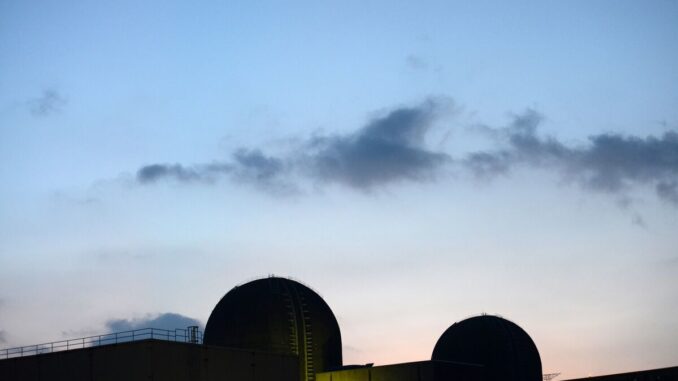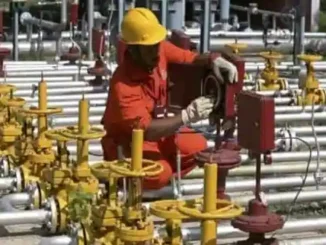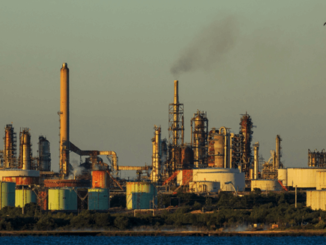
- Decision could make island more dependent on energy imports
- Taiwan aims to decommission last reactor by May next year
Taiwan will shut down its second-to-last nuclear plant on Saturday in a move likely to make the island at the center of US-China tensions even more dependent on the outside world for energy.
The closure of reactor No. 1 at the Maanshan Nuclear Power Plant on the southern tip of Taiwan comes amid a continuing debate among lawmakers about whether to extend the lives of the island’s existing atomic energy facilities. Nuclear currently accounts for about 5% of Taiwan’s energy use, which is dominated by coal and liquified natural gas.
Energy security is a critical issue for Taiwan and its chipmaking industry, led by Taiwan Semiconductor Manufacturing Co. The issue has taken on added importance as Beijing, which views the democratically-run island as its territory, exerts more pressure on Taipei. The tensions are stoking concerns that China could potentially interrupt Taiwan’s energy supplies through a military blockade.
Yet the 2011 meltdown at a nuclear plant in Fukushima, Japan, helped turn popular opinion in Taiwan against the industry. The island’s government said it wouldn’t rule out boosting nuclear’s share of the energy mix in the future, but said the technology needs to improve.
Taiwan’s last reactor, Maanshan No. 2, is set to close in May 2025. Both it and the reactor closing this weekend are planned retirements after about 40 years of use.
“If new nuclear energy technologies can address issues of nuclear safety and nuclear waste, and are accepted internationally, of course, we will be very open to discussing the matter,” Premier Cho Jung-tai told reporters July 17. He said the government will focus for now on expanding the use of natural gas and reducing the consumption of coal.
Taiwan’s moves buck a global trend of renewed interest in nuclear energy, which produces no greenhouse gas emissions but results in toxic waste that can remain radioactive for millennia. Lawmakers spent hours in debate this month over whether to reverse course on the government’s plan to completely phase out atomic power, although no vote was taken.
The use of nuclear energy has long been a source of contention between the ruling and opposition parties in Taiwan. When the Democratic Progressive Party took office in 2016, then-President Tsai Ing-wen said her goal was to make Taiwan nuclear-free by 2025, setting a target energy mix of 50% natural gas, 30% coal and 20% renewables. Opposition parties, on the other hand, have advocated restarting nuclear reactors.
Taiwan now expects renewable energy to comprise a quarter of its energy mix by 2030, up from about 12% this year. Power consumption is forecast to grow by an average of 2.8% a year through 2033, driven by the AI sector. While the island currently has a surplus of electricity, according to Cho, that growth could crimp the excess supply in the years ahead.






